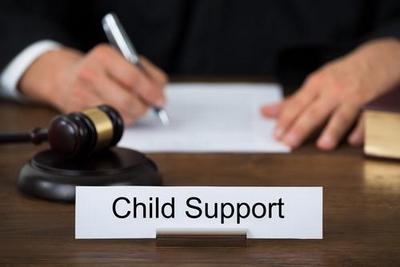Free Initial Consultations
 630-580-6373
630-580-6373With offices in Naperville, Joliet, Wheaton, Plainfield & Chicago
 During an Illinois divorce, a couple’s marital estate is totaled and then divided according to the law. In that marital estate is not just a couple’s assets and income; debt is factored in as well. Unfortunately, this can be especially problematic in a divorce - and not just because it can affect the amount of one’s settlement.
During an Illinois divorce, a couple’s marital estate is totaled and then divided according to the law. In that marital estate is not just a couple’s assets and income; debt is factored in as well. Unfortunately, this can be especially problematic in a divorce - and not just because it can affect the amount of one’s settlement.
Couples might have different values when it comes to money and debt, and one party may have contributed more to the couple’s debt load than the other. Alternatively, one party may have less of an ability to repay the debts because they have a fixed or limited earning ability. Whatever the situation, parties are encouraged to educate themselves on dealing with debt in a divorce, and that includes learning how to go about deciding who should pay for the couple’s credit card debts.
Making the Decision Through Negotiation
Although some divorces are far too contentious to go through a negotiation, most find it to be an affordable alternative to litigation. Unfortunately, debt is a hot topic that can stand in the way of reaching a final settlement. In some cases, it may even completely derail a couple’s hope to end things amicably.
 Divorce can be a massive undertaking with numerous pitfalls, and many can cause extreme but unnecessary stress and financial loss. Thankfully, divorcing parties can mitigate against some of the issues using a strategy known as divorce planning. Learn more about this process in the following sections, including the role and importance of an attorney while navigating through it.
Divorce can be a massive undertaking with numerous pitfalls, and many can cause extreme but unnecessary stress and financial loss. Thankfully, divorcing parties can mitigate against some of the issues using a strategy known as divorce planning. Learn more about this process in the following sections, including the role and importance of an attorney while navigating through it.
What is Divorce Planning?
Although the emotional toll of divorce cannot be denied or ignored completely, parties are encouraged to see the legal process for what it really is: a detangling of assets. What that really means is that legally speaking, divorce is more like a business transaction. Certainly, your feelings are valid, and you have every right (and should expect) to be angry, confused, or hurt - but these emotions will not benefit you in the courtroom. In fact, if anything, they could cause you to make irrational or hasty decisions.
 Being laid off or terminated from a job can have a significant and lasting impact on your finances. It can also restrict your ability to pay court-ordered child support. Thankfully, it may be possible to reduce your obligation amount with a modification to your order for support. Learn more in the following sections, including how a seasoned family law attorney can assist you with the process and improve the outcome of your case.
Being laid off or terminated from a job can have a significant and lasting impact on your finances. It can also restrict your ability to pay court-ordered child support. Thankfully, it may be possible to reduce your obligation amount with a modification to your order for support. Learn more in the following sections, including how a seasoned family law attorney can assist you with the process and improve the outcome of your case.
Are You Eligible for Modification?
Once an order for child support has been entered into the court system, it can be difficult to modify it. That it is why it is so critical that parents attempt to ensure that their original order is based on the most accurate, up-to-date information. However, when circumstances change, a paying parent may be eligible for a modification to their order of support. Examples of such circumstances may include:
 Victims of abuse often assume that a documented history of violence will protect them and their children during and after a divorce. Sadly, this is rarely the case. Instead, abusive spouses often use their children as a way to get close to the victim again. The means and methods for doing so vary from one case to the next, but with proper advocacy and protection, victims and their children can reduce the risk of future abuse. Learn more in the following sections, including how the assistance of a seasoned divorce attorney can help to mitigate against the issues that often arise in a divorce from an abusive partner.
Victims of abuse often assume that a documented history of violence will protect them and their children during and after a divorce. Sadly, this is rarely the case. Instead, abusive spouses often use their children as a way to get close to the victim again. The means and methods for doing so vary from one case to the next, but with proper advocacy and protection, victims and their children can reduce the risk of future abuse. Learn more in the following sections, including how the assistance of a seasoned divorce attorney can help to mitigate against the issues that often arise in a divorce from an abusive partner.
Make Safety Your Primary Focus
Divorce is a complex process, with many pitfalls, but the biggest threat to victims of domestic violence is that of continued abuse. As such, the primary focus should be safety. Create a safety plan and, if necessary, obtain an order of protection. If the children are not covered under the order of protection (which is a possibility), then victims are encouraged to make child exchanges in a safe, public place (i.e. the police station). Do not engage in arguments and never agree to meet your spouse alone - not even to talk about the children. Instead, seek assistance and support from an experienced attorney.
 Families choose adoption for a variety of reasons. Whatever your family’s reasons may be, it is critical that you take the time to adequately prepare for the mental and emotional toll it can have on all involved parties. Learn more in the following sections, including how the aid of a seasoned family law attorney can help ease the process and improve the overall outcome.
Families choose adoption for a variety of reasons. Whatever your family’s reasons may be, it is critical that you take the time to adequately prepare for the mental and emotional toll it can have on all involved parties. Learn more in the following sections, including how the aid of a seasoned family law attorney can help ease the process and improve the overall outcome.
Educate Yourself on the Process
Prospective parents are not always prepared for the mentally and emotionally taxing adoption process, which often exacerbates matters even further. Thankfully, the risk of excessive and unnecessary stress can be reduced if prospective parents take the time to familiarize themselves with the adoption process, as well as any potential obstacles that may arise (i.e. a birth mother changing her mind). Parties are also encouraged to research the various types of adoption (i.e. foster adoption, international adoption, closed adoption, etc.) and the associated costs and requirements to help them in determining which avenue may be most suitable for their situation.
 While even happily married parents can disagree over the best interests of their child, those who are going through a divorce are far more likely to argue excessively over the matter. Sometimes this is because there truly is a risk to the child’s well-being, but other times, it can be related to a vindictive or alienating spouse. Learn more about what happens in these situations, and discover how a seasoned divorce lawyer can help you mitigate against such issues.
While even happily married parents can disagree over the best interests of their child, those who are going through a divorce are far more likely to argue excessively over the matter. Sometimes this is because there truly is a risk to the child’s well-being, but other times, it can be related to a vindictive or alienating spouse. Learn more about what happens in these situations, and discover how a seasoned divorce lawyer can help you mitigate against such issues.
Parents Disagree Over Child’s Football Career
In an unprecedented Pennsylvania divorce case, two parents are fighting over whether their son should be allowed to continue his football career. At age 17, he has already suffered three previous concussions. His mother has not questioned their son’s doctors, who say there is no reason why he cannot continue playing. His father says he is concerned that continuing to play could cause severe permanent damage. He is filing suit against the mother as a way to advocate for his son, but he fears that his concerns will be dismissed.
 Divorce can be an emotionally painful process, and that can make it difficult to navigate through it without saying or doing something you will later regret. Thankfully, it is possible to reduce your risk of regret in a divorce, so long as you have the right knowledge, tools, and resources at your disposal. Learn more in the following sections, including why the assistance of a seasoned attorney is a critical element in your regret prevention plan.
Divorce can be an emotionally painful process, and that can make it difficult to navigate through it without saying or doing something you will later regret. Thankfully, it is possible to reduce your risk of regret in a divorce, so long as you have the right knowledge, tools, and resources at your disposal. Learn more in the following sections, including why the assistance of a seasoned attorney is a critical element in your regret prevention plan.
Prevent Unnecessary Financial Loss
Financial loss in divorce is an all-too-common (but highly preventable) issue - and while it may not seem all that worthy of regret, if severe enough, it can have long-term or even life-long repercussions. Retired and near-retired parties and women are considered to be at the highest risk for these losses, but men can experience them as well. A few ways to prevent them are to:
 Pets have increasingly become grounds for contention in divorce - so much so that many states (Illinois included) have begun to adopt laws regarding the “custody” of pets. Though they may be unable to entirely eliminate the issues that may arise in a high-contention pet custody case, these new laws give pet owners more power when advocating for their animal’s well-being. Learn more about how you can handle pet custody issues in both contentious and non-contentious divorces, and discover how the aid of a seasoned divorce attorney can help ease the entire process.
Pets have increasingly become grounds for contention in divorce - so much so that many states (Illinois included) have begun to adopt laws regarding the “custody” of pets. Though they may be unable to entirely eliminate the issues that may arise in a high-contention pet custody case, these new laws give pet owners more power when advocating for their animal’s well-being. Learn more about how you can handle pet custody issues in both contentious and non-contentious divorces, and discover how the aid of a seasoned divorce attorney can help ease the entire process.
Creating a Pet Custody Agreement
Pets have become beloved family members for most Americans, and some couples treat them more like children than animals. Sadly, they cannot express their feelings or wishes during a divorce. Instead, the matter of custody is left up to the pet owners, and while the law does make provisions for custody, the guidelines are nowhere near as comprehensive as the ones for child-related matters. No “plan” exists. Owners must come up with their own. A few matters to consider when crafting yours might include:
 Some people believe that “absence makes the heart grow fonder,” but deployed soldiers often have a different experience. They return home to find that their once loving and supportive spouse has grown cold and is seeking a divorce. Regardless of their reason, their decision can place servicemembers at serious risk - and not just financially. Emotional anguish, brought on by the grief of losing their spouse, could endanger their lives. Thankfully, it is possible to mitigate the issues. Learn more, including how a seasoned divorce attorney can assist with the process.
Some people believe that “absence makes the heart grow fonder,” but deployed soldiers often have a different experience. They return home to find that their once loving and supportive spouse has grown cold and is seeking a divorce. Regardless of their reason, their decision can place servicemembers at serious risk - and not just financially. Emotional anguish, brought on by the grief of losing their spouse, could endanger their lives. Thankfully, it is possible to mitigate the issues. Learn more, including how a seasoned divorce attorney can assist with the process.
Preparing for Divorce While Deployed
Divorce can be a complicated endeavor for any individual but deployed servicemembers often experience distinct disadvantages while trying to navigate the process. They may lack the communication options necessary for communicating with their attorney, and access to their bank account may be either limited or non-existent while overseas. In contrast, their spouses, who are usually stateside, may have unfettered access to the money, an attorney, and even the servicemember’s personal belongings.
 You may have years, perhaps even decades until your retirement, but you are going through a divorce, the time to start thinking about your nest egg is now! Often one of the more valuable assets in a marital estate, retirement and pension accounts are the primary source of contention in approximately 60 percent of all high-conflict divorces. It is also one of the most complex assets to divide in divorce, and mistakes are both costly and exceedingly common. Learn how to avoid them, and discover what a seasoned divorce attorney can do to help.
You may have years, perhaps even decades until your retirement, but you are going through a divorce, the time to start thinking about your nest egg is now! Often one of the more valuable assets in a marital estate, retirement and pension accounts are the primary source of contention in approximately 60 percent of all high-conflict divorces. It is also one of the most complex assets to divide in divorce, and mistakes are both costly and exceedingly common. Learn how to avoid them, and discover what a seasoned divorce attorney can do to help.
Retirement Plan Types - Why It Matters
Not all retirement plans are the same, especially when it comes to dividing them in a divorce. Pension plans and 401K plans must be divided using a qualified domestic relations order (QDRO). This document, though based on the details of your divorce decree, is actually separate from your agreement, and it should be treated as such. It is a specialized legal area - and not all divorce attorneys have experience with them, so be diligent in your search for one.
